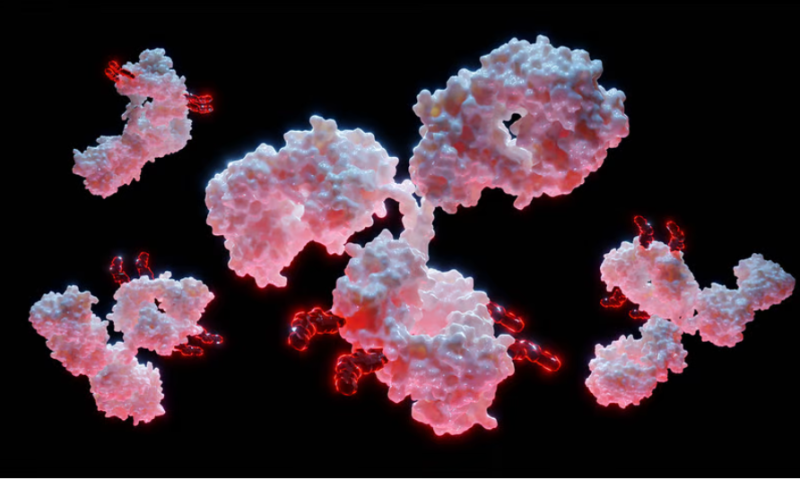Exscientia is planting its flag in antibody design. The company announced the expansion of its artificial intelligence-powered drug discovery platforms from small molecule medicines to the construction of larger and more complex biologic therapies.
That includes the establishment of an automated laboratory in the company’s home base of Oxford, U.K., to create and examine the early potential of novel antibodies—combining AI molecule generation with rapid screening experiments.
The goal is for Exscientia to be able to design all of its biologic drugs from scratch for a broad range of specific disease targets.
“Expanding into biologics enables us to nearly double the addressable target universe of our platform,” Exscientia CEO Andrew Hopkins said in a release. “Over the past two years, antibodies represented 18 of the top 50 drugs measured by revenue, and by adding the capability to design new human antibodies with AI and automation, we believe we will be able to develop the most effective drug for patients, regardless of modality.”
According to the company, the initial versions of its technology have been able to build accurate models of proteins up to 35,000 times faster than AlphaFold2—the groundbreaking program developed by Alphabet’s DeepMind division, which in 2020 demonstrated the ability to predict the final shape of a folded protein down to the width of a single atom.
Each antibody binding site includes two sections, the heavy and light chain, which make up the prongs of the Y-shaped proteins. Exscientia said typical antibody sequencing has previously focused on a single chain and hasn’t offered the clearest picture into their biology. Over the past year, the company said it has been building a proprietary database of pairs of chain sequences to help support its machine learning efforts.
“Current methods limit the discovery of new binding sites to what can be explored via animal immunization or laboratory-based libraries,” said Charlotte Deane, Exscientia’s chief scientist for biologics AI, who joined the company in January. “By virtually designing all aspects of a biologic in silico, we can explore a much broader target universe and create more precisely targeted therapeutics. Biologics by design—not discovery—driven by AI and automated experiment, is our approach.”
The company’s new lab facilities will add an extra 8,000 square feet to its Oxford headquarters and will be outfitted with automation hardware designed in-house for the high-throughput profiling of new antibodies’ affinity, immunogenicity, aggregation and stability.

